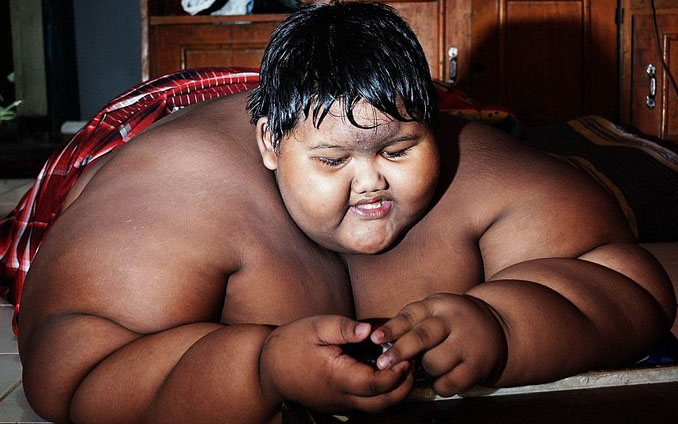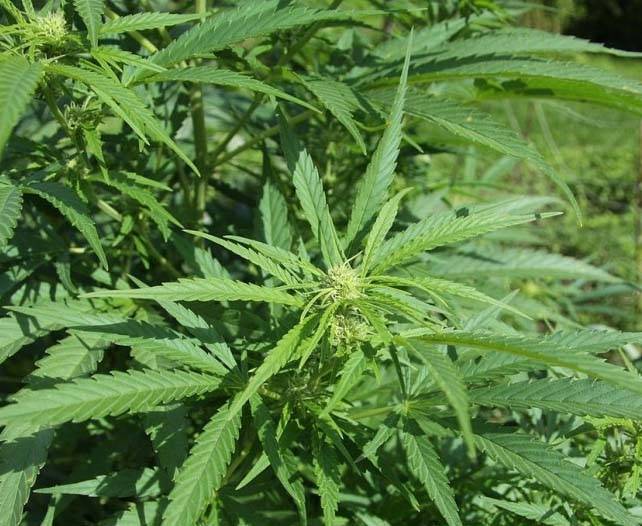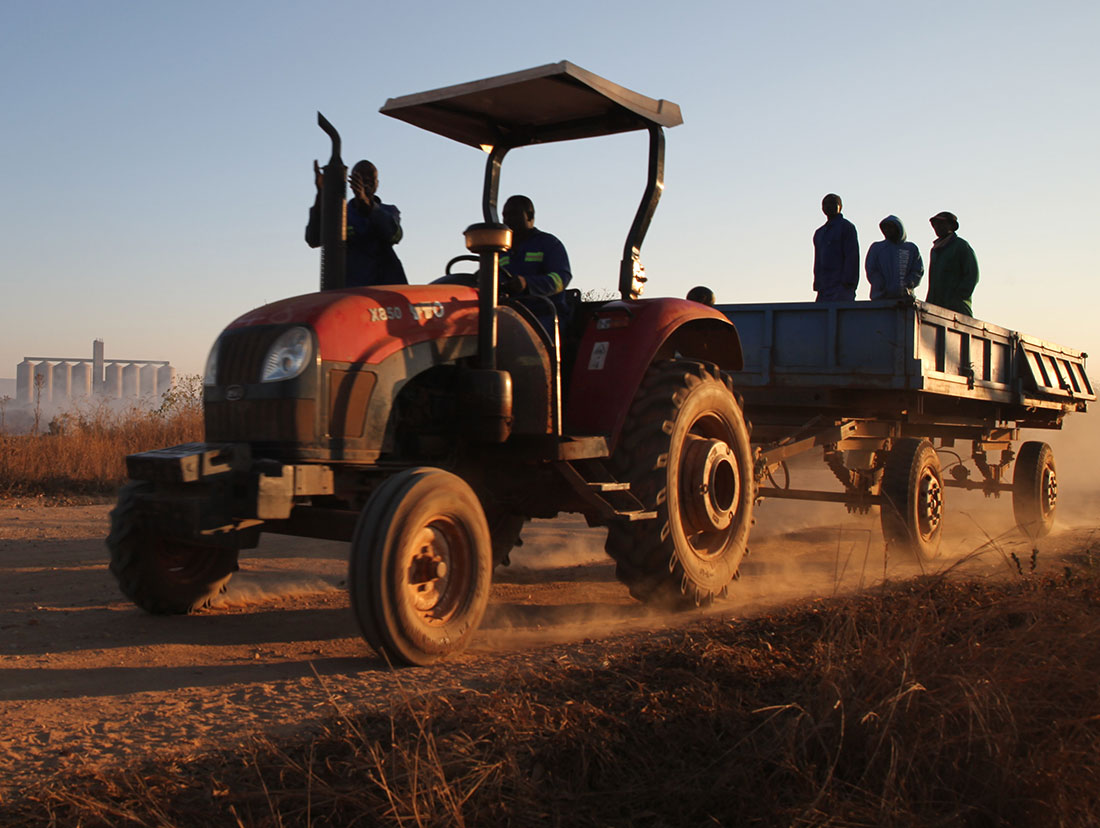The challenges of obesity

Sekai Nzenza on Wednesday
I USED to be skinny, dark and generally not seen as beautiful. I could handle the dark skin aspect of myself, but my self-esteem always reached rock bottom when I looked at my skinny body in the mirror. I therefore avoided the mirror altogether. When we swam in the river back in those village days, the girls with fat on their bottoms were very quick to show how God had blessed them with fat. They jeered at me saying, you eat as much as everyone else and yet you look like a mukonikoni, that thin spider with long legs.
At that time, when we were growing up in the village, fat was beautiful. We longed to eat sweet fat cooks, or fried buns, meat with plenty of fat, tea with many teaspoonfuls of sugar and anything edible that came from the shops. The fattest girl near our village was Primrose Muzorori of Muzorori & Sons Store. But you never saw Primrose anywhere near us. She spent most of her time behind the store counter eating sweets, biscuits and anything else she liked. Primrose was fat and pretty. She had everything to eat.
I avoided seeing her in the store. My jealous and envy of her consumed me. One time my mother took me into Muzorori & Sons Store to buy paraffin and soap. Then Primrose appeared, looking fat. She wore a pretty pink dress with a white collar and buttons at the front. Her chest was already quite well developed, unlike mine.
She was sucking a big orange sweet. Primrose looked at me, from top to bottom, then bottom to top again. Then she frowned as she rested her eyes on my oversized Mariposa shoes that I had borrowed from my older sister Charity. Mai Muzorori, Primrose’s mother, then pulled me by the shoulder and made me stand next to Primrose to compare our bodies. Although Primrose and I had been born the same year, I was a lot smaller. Mai Muzorori said my skinny body might have been caused by malnutrition, bilharzia or ringworms.
She advised my mother to feed me on eggs and bananas. I recall my mother laughing half-heartedly and saying, “Ah, zvinobvepi?”, my mother asked, meaning, where would that kind of food come from? Bananas were unheard of in our village. Eggs were not to be eaten. They were meant to produce chicks so we can have more chickens.
When my sisters and I went to boarding school, our mother packed dried salted peanuts, peanut butter, smoked goat meat, ipwa or sugar cane and other home grown foods. She also made mbwirembwire, the powder made from roasted ground maize with added salt. We could place the powder on our tongues and eat slowly in order to avoid choking, and then drink some water. The girls from the city laughed at our mbwirembire, saying it was such uncivilised food.
They referred to us as the students from a “strong rural background” (SRBs). Among the girls from the city, was Sarah Phiri from Mufakose. I recall that her mother was from Murehwa, but her father had originally come from Malawi. Mr Phiri was a cook for a European family. He was given many presents to take to Sarah when school holiday was coming to an end.
After a month of school holidays in town, Sarah came back to school having added a few more kilos of weight to her body. Sarah’s trunk was full of choice assorted biscuits, sugar, sweet drinks, various jam jars, chocolates, bread, cakes and everything sweet. She unpacked and spread every one of her items on the dormitory bed so we could all see and admire the foods from town. I never spread my home grown food on my bed, for fear of embarrassment.
Who would be impressed with a plastic bag of mbwirembwire and roasted peanuts?
But Sarah was kind. She often gave me some biscuits and I gave her my mbwirembire. We were friends. She was dark like me, but beautifully fat and round. Many years after leaving the village, I was at a barbecue with my cousin Reuben and his friend Sam. Sam lives in Denmark and visits Zimbabwe once a year.
Sam patted Reuben’s fat stomach and said, “Ah, Mukoma, what is the matter with you? You drink so much beer, eat so much sadza nenyama and then you also drink bottled fizzy drinks instead of water? Why? Because you like sugar? “Kuita chimimba mutekwa zera renyu iri?” Sam is a fitness fanatic and he goes jogging every morning. Reuben was offended, but not for long. He accepted that when a real friend tells you the truth, you must take note. As the elders say, wakuruma nzeve ndewako.
Sam then gave us all a lecture, telling us that we no longer live in the village where our food was mostly organic and healthy. We have adopted Western lifestyles and eat take away foods, drink fizzy drinks like Coke and other sugary liquids which taste nice but damage our teeth and our health when taken in excess. Reuben said he was so used to relaxing with other guys over a beer and roasting meat outside Harare or simply eating sadza and meat at home. Everyday.
“Meat here is nice, I tell you, unlike the genetically modified meat you get in Europe, Zimbabwe has real tasty steak,” said Reuben.
“Sure, but what is wrong with moderation? Eat more road runner chickens, kale vegetables. Eat millet sadza. Drink plenty of water. Then you walk, run or swim. Being fat is unhealthy Mukoma.
“You will suffer from diabetes, heart diseases and high blood pressure. We did not have those illnesses when we lived in the village. Guys, this Western lifestyle of excess bad food can kill us. We are becoming obese. Some of our people are very poor with nothing much to eat. But others are suffering from obesity due to eating too much food”, said Sam.
Obesity is unhealthy. In fact, it is dangerous. Urbanisation, increasing lack of activity and easy access to cheap and affordable foods, especially deep-fried foods, breads, soft drinks and foods high in salt, sugar and fat is making us too fat. Such kind of fat is causing a significant risk to our health. In South Africa, they have formed a centre to manage obesity at the Medical Research Council within the University of the Witwatersrand.
The researchers report that they face a cultural dilemma because many people do still believe that being big means you are beautiful, fertile, prosperous and free from any other diseases. Social conventions and perceptions are often hard to move away from. I was in Glen Norah, Harare, the other day and watched kids playing a homemade soccer ball, bhora rechikweshe. These kids looked active and healthy. They reminded me of the games we used to play in the village. We were fit. Then I drove through Borrowdale Brooke later.
This is a gated community and a more affluent suburb. I did not see any children walking or playing in the streets around sunset. They were probably busy watching television or using their smartphones playing on social media. Sisi, the maid, was most likely cooking sadza and meat or macaroni with something creamy and fattening. In South Africa, some of the children in the more affluent societies do not play outside due to concerns with neighbourhood safety. Safety issues prevent these children from walking or biking to and from school. They are driven everywhere.
At home, they stay mostly indoors after school. While inside the home, the children have a tendency to eat packaged snack foods, drinks with high sugar content and fast foods. Sometimes their parents take them out to malls where they feast on burgers, curries, pizzas, fried food and chips. The children are becoming fat and unhealthy. We cannot blame children for being fat, but we can increase education on the values of good food and exercise.
As we become more urbanised, we have adopted new foods and eating habits. At the same time, our body images continue to change. Some of us still want to look fat. But, as we become aware of the dangers of obesity, we are being forced to examine the food before we eat. Although I do not live in the village, I go there often. I am not skinny any more. But I am still dark. The desire to be fat has left me but I still long to be more beautiful, and perhaps, not become obese.
Dr Sekai Nzenza is a writer and cultural critic.








Comments